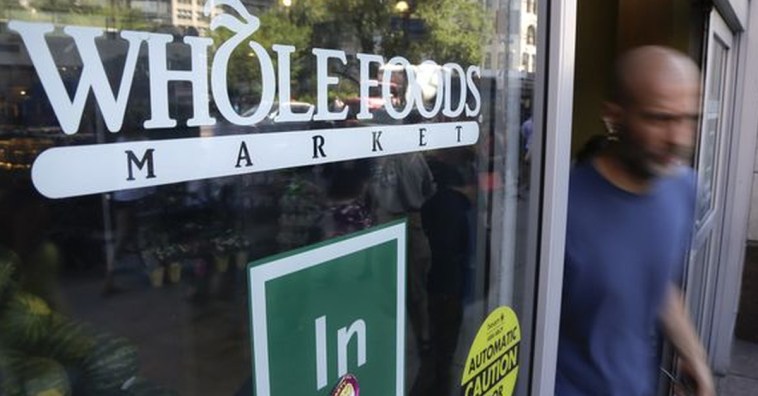AUSTIN, Texas — Top executives for Austin-based Whole Foods Market issued a video message Wednesday admitting the company overcharged some New York customers and laying out plans to rectify the issue.
Videos By Rare
Co-CEOs John Mackey and Walter Robb made the joint statement in a nearly 2-minute video posted on the organic food giant’s YouTube channel.
“Straight up, we made some mistakes,” Robb said. “We want to own that.”
They said the chain would implement a 100 percent customer guarantee to refund shoppers the full price of an item when they find evidence they are overcharged. Mackey said the mistakes have to do with mostly fresh products, such as fresh juices and cut fruit, and there is “a very, very small percentage” of impacted foods that are tied to “misweighing errors.”
“We know they are unintentional because the mistakes are both in the customer’s favor and sometimes not in the customer’s favor,” Robb said of the mistaken charges. “It’s understandable sometimes mistakes are made. They are inadvertent. They do happen, because it’s a hands-on approach to bringing you the fresh food.”
Mackey said Whole Foods will increase their worker training at stores in New York and elsewhere “because we want to be perfect,” and will implement a new third-party auditing system to watch for overcharging errors.
“If there is a mistake that’s not in your favor, we promise to give you that item for free,” Mackey said.
The executives hope to issue a new report in 45 days on what kind of progress they have made on correcting the matter.
One week ago, the New York City Department of Consumer Affairs announced it uncovered evidence that there was “systemic overcharging for pre-packaged foods” at the city’s Whole Foods stores.
The agency said it found the stores “routinely overstated the weights of its pre-packaged products – including meats, dairy and baked goods – resulting in customers being overcharged.” It tested 80 types of pre-packaged products and “found all of the products had packages with mislabeled weights.”
Also, 89 percent of the packages did not meet federally set standards on how much packages could deviate from actual weight, the agency went on to say. For example, the findings ranged from 80 cents more for a package of pecan panko to $14.84 for a package of coconut shrimp.
The agency’s “findings point to a systematic problem with how products packaged for sale at Whole Foods are weighed and labeled,” the agency said in its statement last week. “The snapshot suggests that individual packages are routinely not weighed or are inaccurately weighed, resulting in overcharges for consumers.”
The mislabeled products included nuts, almonds, corn nuts, berries, vegetables and seafood, the agency said.
Violations of falsely labeled packages is $950 for the first violation, and up to $1,700 for subsequent violations, the agency said. Whole Foods could be facing thousands of dollars in fines, the agency added.
Similar claims have been made in California, where Whole Foods paid nearly $800,000 in penalties to resolve the matter.
Robb and Mackey said anyone with feedback and thoughts can email feedback@wholefoodsmarket.com and they would both personally read the notes and respond.

